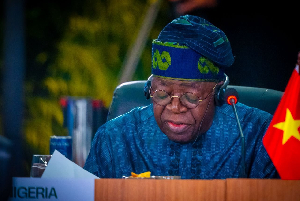Despite lawmakers’ rejection of electronic transmission of election results, the Independent National Electoral Commission (INEC) says it has the capacity to transmit election results electronically across the country regardless of the poor conditions in remote areas.
The commission said its joint committee which consists of telecommunication stakeholders had revised the system and concluded that e-transmission of election results was practicable.
This is coming days after the National Assembly blocked the transmission of election results through electoral means.
While many senators were absent in the Red Chamber during the vote to reform Nigeria’s election processes, the bulk of the lawmakers voted in favour of the Nigerian Communications Commission (NCC) to certify that nationwide coverage of the internet is guaranteed before electronic transmission of results can be carried out.
Some of the senators argued that transmission of electronic results may be difficult due to poor network coverage
But INEC National Commissioner and Chairman (Information and Voter Education Committee), Festus Okoye in an interview with Channels TV on Saturday disagreed with the National Assembly, saying the commission had uploaded results of 22 elections ‘even from areas where you have to use human carriers to access’.
He said, “We have uploaded results of 22 elections, including state assemblies, house of representatives elections, senatorial elections and governorship elections into our central portal where the public had an opportunity of viewing them.
“We have uploaded results from very remote areas, even from areas where you have to use human carriers to access.
“So, we have made our own position very clear, that we have the capacity and we have the will to deepen the use of technology in the electoral process.
In another interview with Punch, Okoye said the commission’s joint committee after its meeting in March 2018 assured INEC that e-transmission of election results was possible and practicable.
He said, “INEC has the capacity to transmit election results from the polling units to the Registration Area Collation Centres to the Local Government Collation Centres, the various state, federal and senatorial district collation centres, and the state and national collation centres.
“The Joint Technical Committee constituted by the commission and the Nigerian Communications Commission and made of telecommunication operators met on March 9, 2018, and the consensus was that the requirements for the electronic transfer of results proposed by INEC is practicable. The meeting, therefore, agreed that the solution that INEC wants to deploy is possible.
The INEC commissioner emphasised that the electoral body was irrevocably committed to using technology in the electoral process.
General News of Sunday, 18 July 2021
Source: pulse.ng













